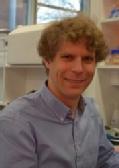WMS Events Calendar
Please see this page for MB ChB events.
BMS Seminar: Temporal regulation of genome replication, Dr Conrad Nieduszynski, Dunn School of Pathology, University of Oxford
Abstract: Accurate and complete genome replication is essential for all life. A single DNA replication error in a single cell division can give rise to genomic disorders, including cancer. Our research aims to determine how cells faithfully complete genome replication before cell division. DNA replication initiates at thousands of specific sites, called DNA replication origins, distributed throughout the genome. Faithful completion of genome replication requires sufficient, appropriately distributed origins to be activated (‘fired’). We aim to discover how the cell regulates the ‘firing’ of these origins? I will present two unpublished stories from the lab.
First, in mammalian cells, 3D genome organisation is strongly predictive of replication timing. We have disrupted genome architecture, via cohesin degradation, and assessed the consequences for replication timing. In both asynchronous and synchronised cells we find that replication timing patterns do not depend upon intact cohesin-mediated genome architecture. These surprising results suggest that cohesin-mediated genome architecture does not play a role in either the establishment or maintenance of replication timing.
Second, we have established single molecule methods for the study of DNA replication. Errors in DNA replication occur on single molecules in individual cells; however these errors can be hidden from view in genomic approaches that look at data from populations of several million cells. We have developed a sequencing method for the measurement of replication fork movement on single molecules. Using sequencing reads of 40-250 kb we have generate the first whole genome map of DNA replication dynamics at the single-molecule level. Our approach unmasks the heterogeneity of eukaryotic DNA replication - a critical step for investigating fork stalling and for the genomic characterisation of mammalian replication initiation.
Biography: Conrad undertook his PhD in Cambridge with Mark Carrington before moving to Dundee for a post-doc with Anne Donaldson and Julian Blow. In 2007 he was awarded a Leverhulme Early Career Fellowship to study the evolution of DNA replication origins. Then in 2008, Conrad was awarded a BBSRC David Phillips Fellowship with which he established his own research group at the University of Nottingham. His research group established high-throughput sequencing approaches to quantitatively measure at high resolution how genomes replicate and applied these methods to discover mechanisms regulating DNA replication in diverse eukaryotic and prokaryotic cells. In 2014 his group relocated to Oxford and in 2016 he was awarded a Wellcome Investigator grant. The group aims to determine how cells faithfully complete genome replication.

